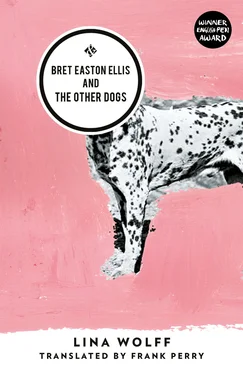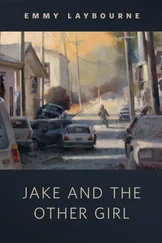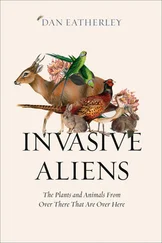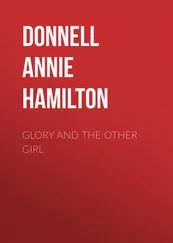The editor of the magazine had fixed on what she said about lazily masturbating monkeys. Alba Cambó on Lazily Masturbating Monkeys was written in bold above her image. This picture of her was not a particularly successful one. She was shown at an angle from the front with her lips slightly apart, an expression that actually made her look a bit retarded, even though Alba Cambó was not an ugly woman in reality. Mum said it was an unfortunate picture and an unfortunate piece of writing and that Alba Cambó might have gone a bit too far in what she said. In any case we both agreed that the first short story was better than the second. Mum put them both in a drawer in her bedroom where she kept magazine articles, obituaries and other things she felt somehow had to do with us.
Apart from the writing and the interviews there didn’t seem to be anything special about Alba Cambó. She fit in to the everyday life that was typical of the neighbourhood without any difficulty. Her hair was bleached and in rather poor condition, she was not in the first flush of youth and often had too much black around her eyes. She had a hoarse voice: it might have been the alcohol or the tobacco smoke that had damaged it, Mum thought. She was not particularly friendly and never initiated a conversation. On some days you would see her with one man and on other days with someone else. One of the men was tall and dark and said hello in a friendly way if you met on the stairs, although he never started up a conversation either. All of which made it difficult for us to form an image of Alba Cambó in those first few months. But her ceiling was our floor, and there was only a set of beams a foot or so thick separating our lives. This was something I often heard Mum say during the period following the publication of Alba’s first two stories. After all there’s only twelve inches separating our lives, she might exclaim on the phone or over a glass of wine one evening. We could hear the water rushing through the pipes when Alba Cambó flushed the toilet, and when she had a drink we could hear the tiny thud as the glass was put down on the surface of the counter. I am sure Mum entertained various notions about Alba Cambó she didn’t confide to me because even though I had read both the short stories I was far from being a sufficiently experienced conversational partner when it came to certain subjects. I think though that she must have spoken about Alba with some of her male acquaintances because on several occasions when one of them came to dinner, conversation would fall silent around the table when the sound of heels could be heard from the terrace below. The eyes of both Mum and her friend then turned towards the railing where they remained fixed as though they were both, each in their own way, visualising a version of Alba Cambó and what she was doing down there.
The building we lived in, and which I still write in, is located on Calle Joaquín Costa not far from the Universitat metro station. It is two storeys tall, built sometime in the 1940s, and has never been renovated. On the street outside shades of grey shift across the trunks of plane trees that look as though they have been attacked by scabies. But their leafy tops are healthy and in the spring they are light green; they darken in the summer and are shot through with warmer colours in the autumn. During the winter they are bare for a few months, but winters in Barcelona are short and mild and after a while the trees turn light green again. The foliage moves back and forth in the wind that comes in off the sea in the mornings and smells of seaweed and salt. On some days there is a tinge of oil in the air, from the port presumably. Even in those days our terrace was an oasis. Mum spent all her free mornings and evenings there. On it she had a deck chair and a round table where she would put a glass of wine while she smoked. From our terrace you could see part of the terrace below because it was slightly larger than ours and stuck out a bit more.
Our apartment was better on the outside than in. In Mum’s room you could see damp spots starting to form on the ceiling, and although my room was small it had a high ceiling, which made you feel as though you were sleeping in a can. The only window in the room overlooked a tiny inner courtyard. It was no more than a space for refuse really, and a means of letting light in, and had not been painted since the house was built. So my view consisted of a smooth dirty-grey surface the same colour as Blu-Tack or papier mâché. The whole building smelled in a way I believed at that time was the smell of an ordinary building but which I later realised was the smell of mould. And even though the refuse truck came every evening and the refuse space got disinfected, some vermin managed to survive. The cockroaches were red, several centimetres long, and had wings they could half-fly with. You would suddenly see them on the doorframe while you were brushing your teeth, and they would sit there calm and composed while washing their long reddish-brown antennae with their legs. The invasions were worse at the beginning of the summer and tailed off towards its end. Mum told me she had read a book by a Basque writer who suggested you should call cockroaches by name, which would make them impossible to kill. She experimented with calling one of them José María, and it really was impossible for her afterwards to crush him under her foot. This led to our having rather a lot of José Marías running over the floors on summer nights. Once I stepped on one as I was going to the toilet at night. Feeling its body scrabbling against my foot was revolting, and it was after that I decided to take things into my own hands. One night when Mum was at a friend’s, I went on the attack with a spray I had bought at the Chinese shop on the corner. I turned on the light, shifted the sofa and got spraying. Afterwards I could see them dying with their legs in the air like the sails of little windmills. As I swept them up I felt a pang of guilt that Mum’s José María probably lay among the cadavers. But new José Marías were bound to turn up, because there was an inexhaustible supply somewhere, and Mum would never have to miss her late friend.
There were maggots in the building as well although in their case Mum never suggested giving them names. It was almost impossible to get the better of these maggots, the caretaker said, because they seemed able to lay their eggs even in cement. They were everywhere and their shed skins turned up in flour bags and rice containers and on stale bits of bread. Eventually they turned into small moth-like creatures that were drawn to the light. You wouldn’t see them for a very long while, and then suddenly, as you were having your supper on the terrace or in the sitting room, talking about something nice and Mum might be sharing a bottle of wine with someone, a winged insect would come fluttering through the air like a reminder that their nests were still going strong and that the refuse space would never be entirely clean.
If any of the men friends who came to see Mum brought up the state of the apartment (they might, for instance, say it was nice but that the need for renovation appeared pressing if not to say urgent), Mum used to reply that yes, the flat we lived in was like a sinking boat. Just as you plugged one hole, another one burst open.
‘One fine day,’ she would say, ‘the water will flood in and it will sink to the bottom.’
She even joked about the need for renovation now and then and used to call the flat ‘our castle, our grave and maybe our mausoleum’. The men laughed incredulously when they heard her say things like that. Presumably they thought she had some kind of plan up her sleeve after all, and that a gang of craftsmen would arrive one day and knock down the plaster, break up the old flooring and take down the damp-stained ceilings. And they probably thought this woman needs a man, and perhaps just for a second or two they imagined what life would be like for them living with us, how long it would take them to get to work, where they would put their computers and their bookshelves, how much of the mortgage remained to be paid off, that they might be able to write the book they had always dreamed of writing in exchange for lending a practical hand and a bit of masculine glamour — ideas that might flicker past for a moment before vanishing. But not one of them ever took any practical initiative and I think they were wise to keep their distance from us. We weren’t a good match if it was financial freedom they were after. Mum’s salary working for the local government was hardly enough for any kind of extravagance and we lived on soups made of carrots, potatoes and chickpeas. We did eat meat, although, like the working classes of old, only on Sundays. Mum would often leave the soup-pot simmering for hours just like it was supposed to in the ancient recipes she worked from and which were based on the principle that many cheap ingredients could be made into something special provided they were allowed to cook together for long enough. The smell of those endless simmers found its way into all the nooks and crannies of the flat and seeped into our clothes as well, which was worse. Sometimes when I was away from home I would suddenly become aware of that smell of overcooked food. What’s that odour like mouldy old blankets, I might think, only to realise that the smell came from me. But there was a kind of pride in enduring, in bearing your cross and imagining that you were like a larva in its cocoon, trapped for now maybe but one day, one fine day, you would spread your wings and burst out and then everything would be utterly different. You couldn’t exactly imagine what it would be like, but it would be totally different and that was all that mattered. Meanwhile our motto had to be that we made the best of what we had. And if you had nothing, then you made the best of that too.
Читать дальше












